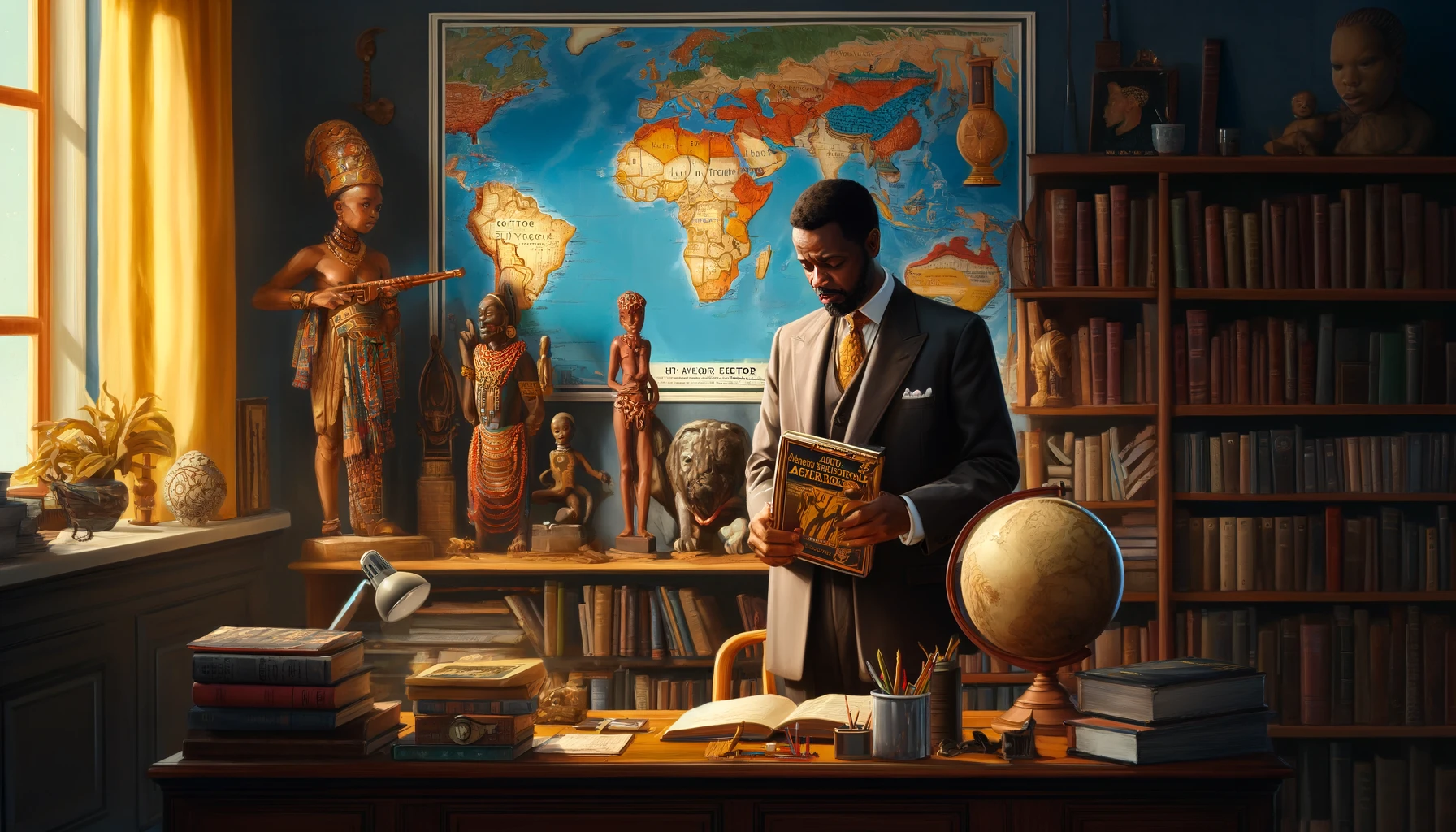Professor Abeni Ajayi adjusted her reading glasses, the familiar scent of aged paper filling her nostrils. Cracking open the textbook, a familiar wave of frustration washed over her. It was another Western-centric narrative, reducing the rich tapestry of African history to a series of conquests, explorations, and encounters – all from a European perspective.
As she delved deeper, a lump formed in her throat. Sentences like “the Dark Continent” and “primitive tribes” jumped off the page, each word a fresh wound. These textbooks, meant to educate, perpetuated a narrative that erased the achievements, complexities, and agency of African people.
Tears welled up in her eyes, blurring the text. Generations of her ancestors, from mighty empire builders to pioneering scholars, reduced to footnotes in a story that wasn’t theirs. The anger simmered deep within her, a familiar ache that flared up every time she encountered these skewed narratives.
Taking a deep breath, Professor Ajayi shut the book with a thud. The silence of the office felt heavy, mirroring the weight of historical injustice. But amidst the frustration, a spark of defiance ignited. These textbooks wouldn’t define the stories she told her students.
Wiping away her tears, she rose and walked to her bookshelf. There, amongst the well-worn classics, stood a collection of African histories, painstakingly researched by scholars from the continent itself. These were the narratives she craved, filled with the voices and experiences of her people.
Opening one such volume, Professor Ajayi began to formulate her next lecture. She wouldn’t just educate her students about dates and battles; she would transport them to the heart of ancient empires, bustling trade routes, and vibrant cultures. They would learn about the rise and fall of kingdoms, the ingenuity of scientific discoveries, and the rich tapestry of African art and literature.
This wasn’t just about facts and figures; it was about reclaiming a narrative. Professor Ajayi knew the power of stories to shape identity and understanding. Her classroom would be a space where African history was not a forgotten footnote, but a vibrant and dynamic force.
As she planned her lecture, a quiet determination settled over her. The tears may have been a sign of frustration, but they were also a wellspring of passion. Professor Ajayi would not let these biased narratives stand. She would be the one to rewrite the story, one student, one lecture at a time.
